Place your adverts here on InfoDig @ low rates; banner ads, sponsored links and guest articles etc. Contact us
No doubt, Nigeria is a heterogeneous nation and she has been governed by people with different political Ideologies and philosophies in the past. For this reason, it is unwise to forget the achievements of these past leaders of nigeria because most of them contributed to the growth which the country has attained today.
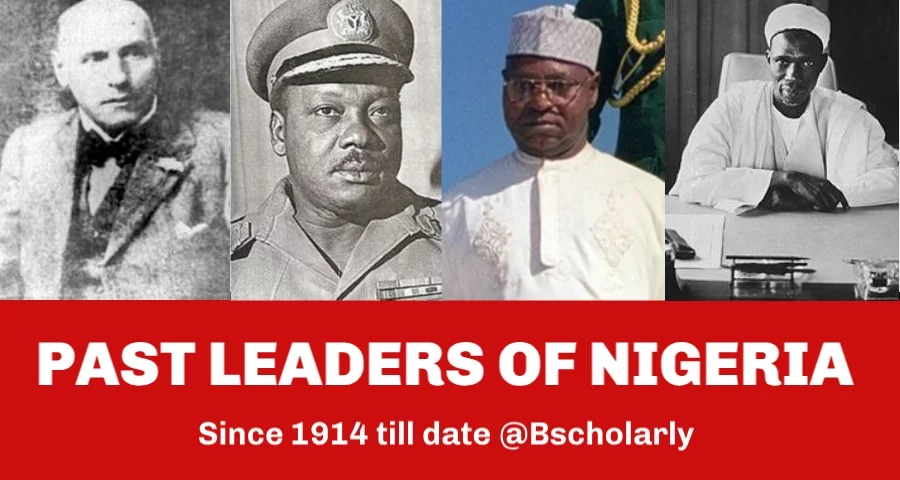 past leaders of Nigeria from 1914 till date
past leaders of Nigeria from 1914 till dateIn this article, i will be making a list of all the past leaders of Nigeria from 1914 till date. I enjoin you to read through this page carefully if you really want to know all the past leaders of Nigeria, their date of birth and duration of leadership. Trust me; you are going to enjoy this work.
ALSO READ: Best Universities in Nigeria to study Pharmacy
List of Nigeria’s Past Leaders Since 1914 till 2024
Below are the Governor-Generals, presidents and military heads of state that has ruled Nigeria since 1914 till 2024:
- Lord Frederick Lugard – 1st Governor-General of Nigeria (1914 – 1919)
- Sir. Hugh Clifford – 2nd Governor-General of Nigeria (1914 – 1925)
- Sir. Graham Thompson – 3rd Governor-General of Nigeria (1925 – 1931)
- Sir. Donald Cameron – 4th Governor-General of Nigeria (1931 – 1935)
- Sir Bernard Bourdillon 5th Governor-General of Nigeria (1935 – 1943)
- Sir Arthur Richards – 6th Governor-General (1943 – 1948)
- Sir John Macpherson – 7th Governor-General (1948 – 1954)
- Sir James Robertson – 8th Governor-General (1954-1960)
- Rt Hon Dr. Nnanmdi Azikiwe – President and Head of State (1960-1966)
- Alhaji (Sir) Abubakar Tafawa Balewa – Prime Minister and Head of Government (1960 – 1966)
- Major General J.T.U Aguiyi Ironsi – Head of State (January 15,1966 – July 29, 1966)
- General Yakubu Gowon – Head of State (July 29, 1966 – July 29, 1975)
- General Murtala Ramat Mohammed – Head of State (July 29, 1966 – February 13, 1976)
- General Olusegun Obasanjo – Head of State (February 13, 1976 – October 1, 1979)
- Alhaji Shehu Aliyu Usman Shagari – President (October 1, 1979 – December 31, 1983)
- Major General Muhammadu Buhari – Head of State (December 31, 1983 – August 27, 1985)
- General Ibrahim B. Babangida – President (August 27, 1985 – August 25, 1993)
- Chief Ernest Shonekan – Head of State (August 25, 1994 – November 17, 1993)
- General Sanni Abacha – Head of State (November 17, 1993 – June 8, 1998)
- Gen. A.A Abubakar – Head of State (June 8, 1998 – May 29, 1999)
- Chief Olusegun Obasanjo – President (May 29, 1999 – 29 May 2007)
- Umaru Musa Yar’adua – President (
29 May 2007 – 5 May 2010) - Goodluck Jonathan – President (9 Feb 2010 – 29 May 2015. Acting for Yar’Adua to 5 May 2010)
- Muhammadu Buhari – President (29 May 2015 – 29 May 2023)
- Bola Ahmed Adekunle Tinubu – President (29 May 2023 – Till date)
Above is just a list of all the past leaders of Nigeria from 1914 till 2024. If you need to know more about those leaders, join me as I give you a detailed information about everyone of them.
Also Read:
- Advantages and Disadvantages of Unitary System of government
- Advantages and Disadvantages of Federal System of government
1. Lord Frederick Lugard – 1st Governor-General of Nigeria (1914 – 1919)
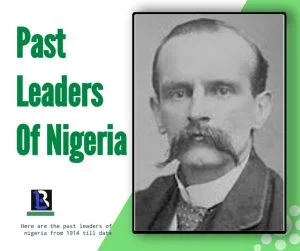 sir lord Lugard leadership of Nigeria in 1914
sir lord Lugard leadership of Nigeria in 1914Lord Frederick Lugard was the 1st Governor-General of Nigeria between 1914 – 1919. He was born in Madras, India, but was raised by his father in Worcester, England. Just like his father, Lord Lugard was a soldier, mercenary, explorer of Africa and colonial administrator.
Lord Lugard is popularly known in Nigeria for his creation of the Northern provincial administration and the 1914 amalgamation.
2. Sir. Hugh Clifford – 2nd Governor-General of Nigeria (1914 – 1925)
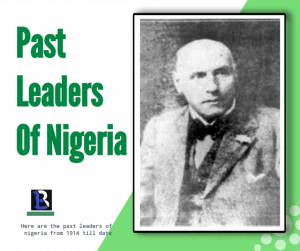 features of Clifford constitution of 1922
features of Clifford constitution of 1922Sir. Hugh Clifford was the 2nd Governor-General of Nigeria. He led from 1914 till 1925. Clifford was born in Roehampton, London. His father was a a distinguished British Army General.
According to Wikipedia, Clifford wanted to join his father, Henry Hugh Clifford, in the arm, but he later joined the civil service with the help of his uncle. He is a very respected man all over the world. In fact, many schools in Malaysia are named Clifford School in his honor. In Nigeria, Sir. Hugh Clifford is well known for his introduction of elective principle in Africa.
Also read: See the list of the best governors in Nigeria this year
3. Sir. Graham Thompson – 3rd Governor General of Nigeria (1925 – 1931)
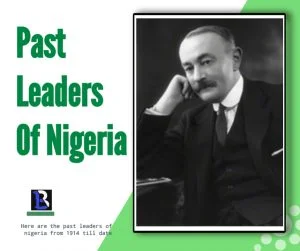 colonial leaders who ruled Nigeria
colonial leaders who ruled NigeriaGraham Thompson was the 3rd Governor General of Nigeria. He led from 1925 till 1931 as a British civil servant in the Admiralty. After schooling at Winchester and New College, Oxford, he decided to join the civil service in 1900.
Today, Sir. Graham Thompson is popularly know for his imposition of tax on Nigerians which eventually led to the Aba women’s riot of 1929.
4. Sir. Donald Cameron – 4th Governor General of Nigeria (1931 – 1935)
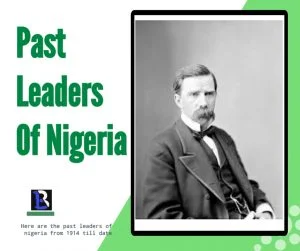 images of the past leaders of nigeria from 1960 till Date
images of the past leaders of nigeria from 1960 till DateDonald Cameron was the 4th Governor General of Nigeria. He led the country from 1931 till 1935. It Will surprise you to know Sir. Donald Cameron also worked in the Civil service but he never went to the university. He only attended Rathmines School in Dublin for his primary education.
Research also shows that due to his prestige, Sir. Donald Cameron was the second governor of the British to be given the mandate of Tanganyika and later the governor of Nigeria
5. Sir Bernard Bourdillon 5th Governor General of Nigeria (1935 – 1943)
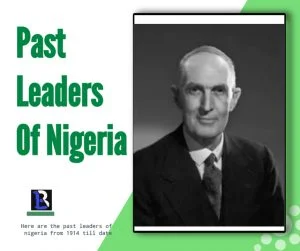 how many military leaders did Nigeria had
how many military leaders did Nigeria hadBernard Bourdillon was the 5th Governor-General of Nigeria. He led Nigeria from 1935 till 1943. Bourdillon went to Tonbridge School in Tonbridge, Kent but he was raised in England and South Africa. He was the British colonial administrator of both Uganda (from 1932–1935) and of Nigeria (from 1935–1943).
Sir Bernard Bourdillon is popularly known in Nigeria for his division of the country into the western, eastern and northern provinces.
ALSO READ:
- Reasons why Indirect Rule Succeeded in Northern Nigeria
- Reasons why Indirect Rule Failed in Eastern Nigeria
6. Sir Arthur Richards – 6th Governor-General (1943 – 1948)
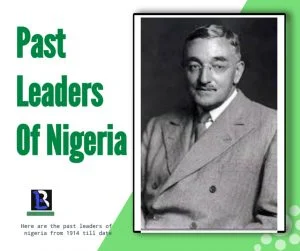 first military head of state in nigeria
first military head of state in nigeriaSir Arthur Richard was the 6th Governor-General of Nigeria. He led Nigeria from 1943 till 1948. However, Nigeria was not the only place where he serve as a colonial administrator. Sir Arthur Richards also led North Borneo, Gambia, Fiji and Jamaica too.
Richards was born by William Richard (his father) in 1885. He attended Clifton College in Bristol and Christ Church, Oxford, in 1907 with a BA. In Nigeria, Arthur Richards is basically known for bringing the the North and South under a single legislature.
7. Sir John Macpherson – 7th Governor-General (1948 – 1954)
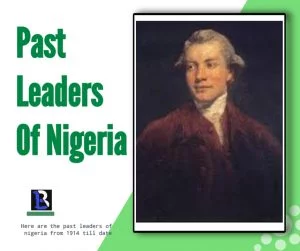 who was the first president of Nigeria
who was the first president of NigeriaSir John Macpherson was the 7th Governor-General. He was born in Edinburgh and was educated at George Watson’s College and the University of Edinburgh. After the second World War, Sir. Macpherson entered the Malayan Civil Service and that was how he became known.
In Nigeria currently, Sir John Macpherson Constitution was a notable one because in the creation of the constitution, there was consultation of Nigerians for the first time.
Also read: See how to gain admission into any institution in Nigeria Without JAMB
8. Sir James Robertson – 8th Governor-General (1954-1960)
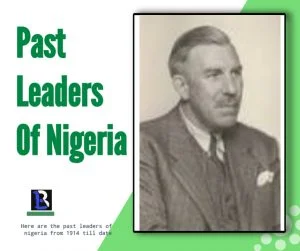 list Colonial leaders of Nigeria
list Colonial leaders of NigeriaJames Robertson was the 8th Governor-General Nigeria had. Immediately after John Macpherson, Robertson led the country from 1954 till 1960. Due to his good works, He was sent to Nigeria to represent the Queen Elizabeth as Head of State.
Research also shows the Sir James Robertson was well educated. He went to Merchiston Castle School in Edinburgh and Balliol College, Oxford. Even till 1961, he was still pursuing his degree in Law (LLD).
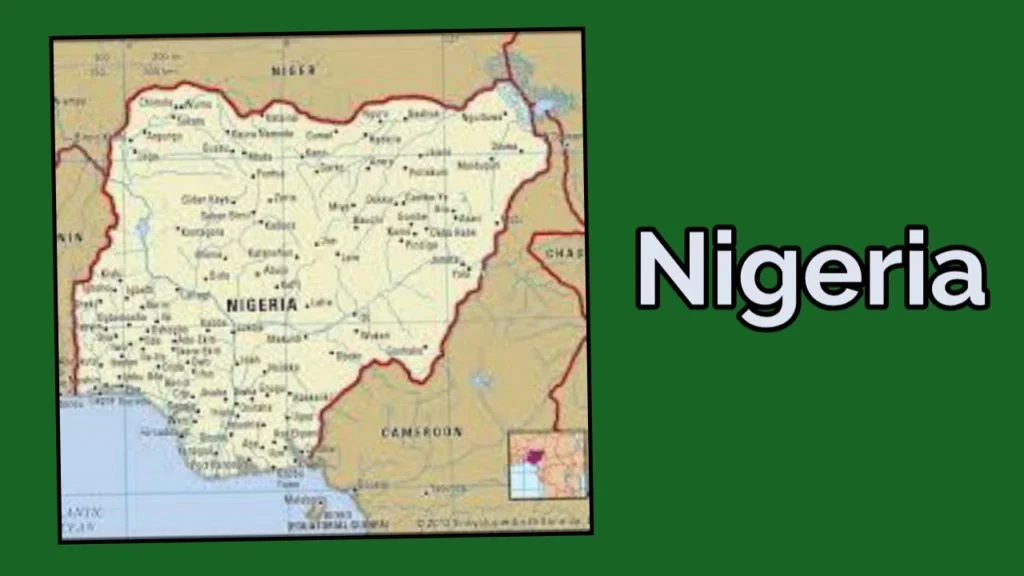 List of Nigerians Leaders since 1914 till date
List of Nigerians Leaders since 1914 till date9. Rt Hon Dr.Nnanmdi Azikiwe – President and Head of State (1960-1966)
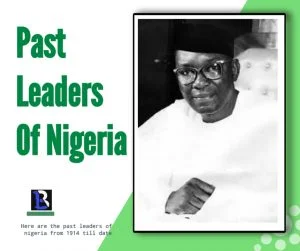 how many leaders have Nigeria had since independence
how many leaders have Nigeria had since independenceDr.Nnanmdi Azikiwe was the first ceremonial President of Nigeria and the first Head of State. He was in office between 1960 till 1966. Dr.Nnanmdi Azikiwe was a very educated man. He studied at Howard University, Lincoln University and even the University of Pennsylvania.
Today, he is considered as one of the driving forces behind the nation’s independence. Conversely, he is also known as the “father of Nigerian Nationalism”.
10. Alhaji (Sir) Abubakar Tafawa Balewa – Prime Minister and Head of Government (1960 – 1966)
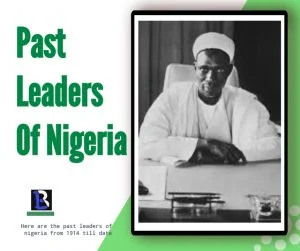 past governor generals of Nigeria
past governor generals of NigeriaJust like Dr.Nnanmdi Azikiwe, Alhaji (Sir) Abubakar Tafawa Balewa was the first Prime Minister and Head of Government of Nigeria at the same time. He was in office between 1960 till 1966. Abubakar Tafawa Balewa schooled at Barewa College and prestigious University College London.
Before becoming the prime minister, he was the Minister of Works. Afterwards he was made the minister of Transport. Eventually, when Nigeria got her independence in 1960, Alhaji (Sir) Abubakar Tafawa Balewa was made the prime minister and head of government in nigeria.
Today, he is also considered as one of the driving forces behind the nation’s independence too.
ALSO READ:
11. Major General J.T.U Aguiyi Ironsi – Head of State (January 15,1966 – July 29, 1966)
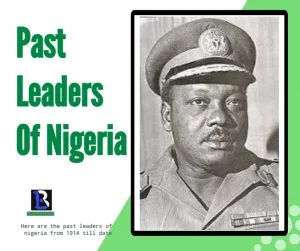 Aguiyi Ironsi pictures
Aguiyi Ironsi picturesMajor General J.T.U Aguiyi Ironsi was the first Head of State and military leader in Nigeria. He was in power between January 15,1966 and July 29, 1966. According to research, Aguiyi-Ironsi went to primary and secondary school at Umuahia and Kano, respectively. He joined the Nigerian Army at the age of 18 against the wishes of his sister who was taking care of him then.
Aguiyi is internationally recognized for receiving Gallantry medal from the Austrian Government for his role in freeing an Austrian ambulance an arrested and imprisoned ambulance unit by the Congolese authorities in 1960.
12. General Yakubu Gowon – Head of State (July 29, 1966 – July 29, 1975)

General Yakubu Gowon was the next Military Head of State after General J.T.U Aguiyi Ironsi. He was in power from July 29, 1966 till July 29, 1975. Gowon is actually from Plateau State, Nigeria. He was the youngest military chief of staff and the leader of the country during the deadly Civil War which led to the death of millions of Nigeria.
Till today, General Yakubu Gowon is still alive. He is one of the significant leaders Nigeria had it its history.
13. General Murtala Ramat Mohammed – Head of State (July 29, 1966 – February 13, 1976)
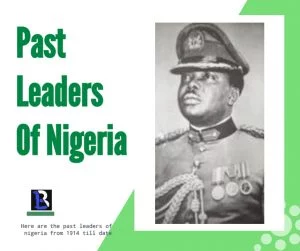 leaders of nigeria
leaders of nigeriaGeneral Murtala Ramat Mohammed was another popular military Head of State in Nigeria. He ruled from July 29, 1966 – Feb 13, 1976. According to research, Murtala Mohammed was born into a fulani family Fulani ruling class family in Kano state. He went to Cikin Gida secondary school before moving to the Royal Military Academy, Sandhurst.
Murtala Muhammed joined the Nigerian Army in 1958. He was later killed by assassination in 1976.
14. General Olusegun Obasanjo – Head of State (February 13, 1976 – October 1, 1979)
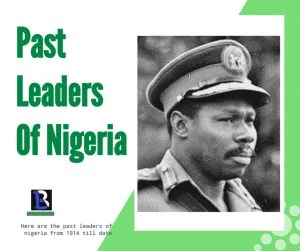 Olusegun Obasanjo past leader of Nigeria
Olusegun Obasanjo past leader of NigeriaGeneral Olusegun Obasanjo was the next military Head of State of Nigeria. He was in power from February 13, 1976 till October 1, 1979. Obasanjo was born in the village of Ibogun-Olaogun and was educated in Abeokuta. General Olusegun Obasanjo is deemed as the best Military Head of state and president Nigeria has every had.
He was ideologically a Nigerian nationalist. This was why he handed over power to the civilian government of Alhaji Shehu Aliyu Usman Shagari. In my opinion, Obasanjo is one of the past leaders of Nigeria from 1914 till date that gave everything he had to ensure democracy and government governance in the country.
15. Alhaji Shehu Aliyu Usman Shagari – President (October 1, 1979 – December 31, 1983)
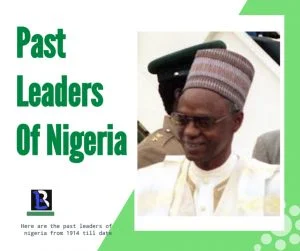 pictures of past Nigerian leaders
pictures of past Nigerian leadersAlhaji Shehu Aliyu Usman Shagari was the next President Nigeria had after so many military coup in the country. He ruled from October 1st, 1979 till December 31st, 1983.
Alhaji Shehu Aliyu Usman Shagari grew up in polygamous family where he was trained by his uncle because his father died 5 years after he was born. Research shows that Shagari also worked as a teach before he became president. He joined politics in 1951 as the secretary of Northern People’s Congress in Sokoto, Nigeria.
After drafting the 1979 constitution of Nigeria, General Olusegun Obasanjo handed over power to Alhaji Shehu Aliyu Usman Shagari, which made him the first democratically elected president of Nigeria. Shagari later died in December 28th, 2018 (aged 93).
ALSO READ:
16. Major General Muhammadu Buhari – Head of State (December 31, 1983 – August 27, 1985)
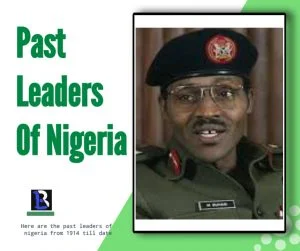 past leaders of nigeria from 1960 till Date
past leaders of nigeria from 1960 till DateNot too long after Alhaji Shehu Aliyu Usman Shagari took over power, Major General Muhammadu Buhari came with a coup and became the Head of State. He ruled the country from December 31, 1983 till August 27, 1985. At the time, Buhari was the General Officer Commanding (GOC).
Buhari played major during the Civil War. He joined the Nigerian army at the age of 19 and attended the Nigerian Military Training College (NMTC) in 1962.
Today, General Muhammadu Buhari claims he has changed to an ardent supporter of democracy. In the history of Nigeria, Buhari is one of the past leaders of Nigeria from 1914 till date that has been fighting corruption.
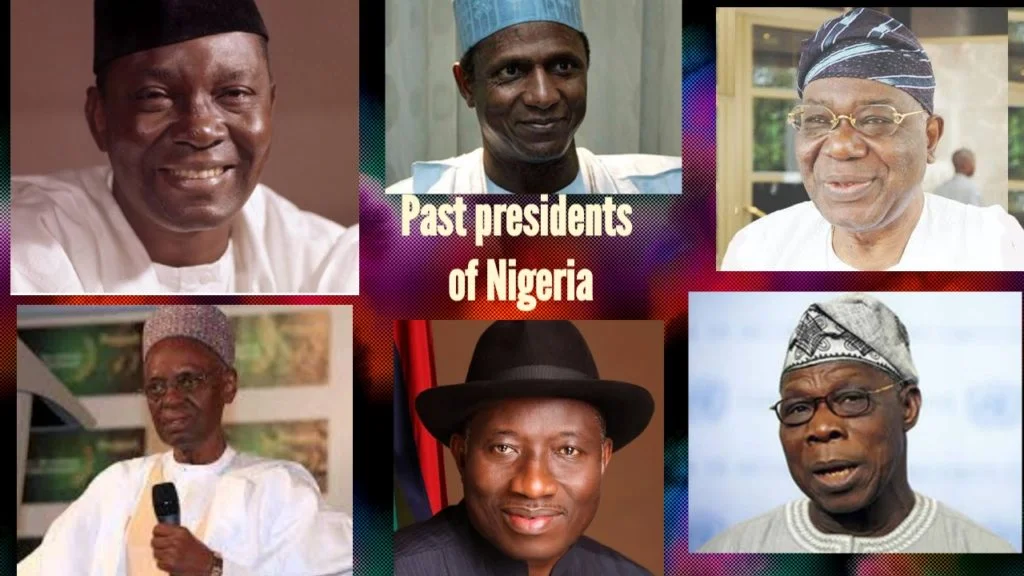 Leaders of Nigeria from 1960 till Date
Leaders of Nigeria from 1960 till Date17. General Ibrahim B. Babangida – President (August 27, 1985 – August 25, 1993)
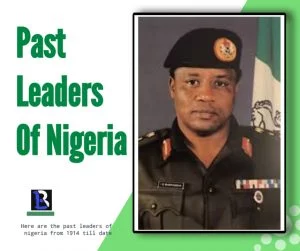 all the past presidents of Nigeria since 1960
all the past presidents of Nigeria since 1960General Ibrahim B. Babangida (also known as IBB) was born on 17 August 1941, in Minna, Niger state. He joined the Nigerian Military Training College (now Nigerian Defence Academy) in Kaduna. According to Wikipedia, Babangida has been a key plotter of the military coups in Nigeria.
Babangida later became the President of Nigeria from August 27, 1985 till August 25, 1993. His regime was a remarkable one because of all the development initiated at that time. He is one of the past leaders of Nigeria from 1914 till date that really contributed to the growth of the country.
Also read: Largest States in Nigeria
18. Chief Ernest Shonekan – Head of State (August 25, 1994 – November 17, 1993)
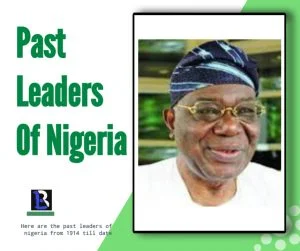 pictures of the past leaders of nigeria
pictures of the past leaders of nigeriaErnest Shonekan was the next in power after Babangida. He ruled Nigeria from August 25, 1993 till November 17, 1993. Apparently, Shonekan didn’t stay long in power.
History have it that Chief Ernest Shonekan was the first lawyer and business man to become a leader of Nigeria. He even worked with the popular United Africa Company of Nigeria, where he was mad a Chairman. Chief Ernest Shonekan got married to Margaret O. Shonekan who was also a civil servant in Nigeria.
19. General Sani Abacha – Head of State (November 17, 1993 – June 8, 1998)
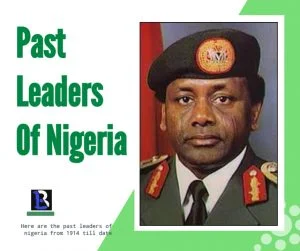 names of Nigerian Presidents From 1960 till Date
names of Nigerian Presidents From 1960 till DateGeneral Sanni Abacha was the 10th Military Head of State in Nigeria. He was in power from November 17, 1993 till June 8, 1998. Abacha was born and educated in Kano state, Nigeria. He first attended the Mons Officer Cadet School in Aldershot, England before joining the Nigerian Military.
According to research, General Sanni Abacha was the first Nigerian soldier to attain the rank of a full military general without skipping a single rank. This shows that he was really a dedicated army. He later died in 1998.
Also read:
20. Gen. A.A Abubakar – Head of State (June 8, 1998 – May 29, 1999)
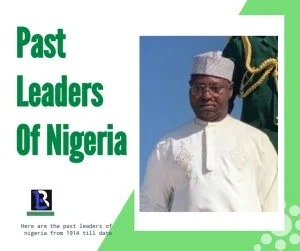 list of Nigerian past leaders
list of Nigerian past leadersAbdulsalami Abubakar (also known as A.A Abubakar) was the next in power after Abacha. He was the military Head who ruled Nigeria from June 8, 1998 till May 29, 1999. This was after the death of Sanni Abacha.
Abubakar was born in 1942. He attended Authority Primary school (From 1950-1956) before studying at Kaduna Technical College. Research also shows that Abubakar worked with both the Nigerian Air Force and and Nigerian arm during his time.
He was so prestigious that he was given a Defence Service Medal. Accordingly, he was made a Grand Commander of the Federal Republic of Nigeria (GCFR). This is apparently the highest award in Nigeria.
21. Chief Olusegun Obasanjo – President (May 29, 1999 – 29 May 2007)
 Olusegun Obasanjo past leader of Nigeria
Olusegun Obasanjo past leader of NigeriaThis was the second time Chief Olusegun Obasanjo became a leader in Nigeria. But this time, he was a president not a military head of state. Obasanjo was in power from May 29th, 1999 till May 29th, 2007.
Obasanjo is a well known Nigerian nationalist. He strongly believes that Nigeria will do better if the country runs a single nation-state rather than being divided into ethnic groups.
As the 12th president of Nigeria, Obasanjo initiated majority of the developments Nigeria boost of today. This is why he is usually referred to as the best president Nigeria has ever had.
Obasanjo was the one behind the creation of the Niger Delta Development Commission and implemented the Universal Basic Education Program to enhance the literacy level of Nigerians.
22. Umaru Musa Yar’adua – President (29 May 2007 – 5 May 2010)
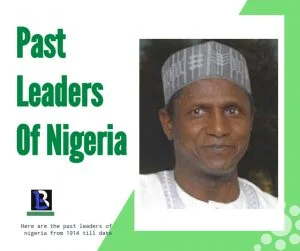 past Leaders of Nigeria From 1914 Till Date
past Leaders of Nigeria From 1914 Till DateUmaru Musa Yar’adua was the next in power after Chief Olusegun Obasanjo. He was the president that led Nigeria from the 29th of May 2007 till the 5th of May 2010 when he died. Yar’adua was born in 1953 at Katsina, Nigeria. He went to Barewa College and the prestigious Ahmadu Bello University (ABU).
It will surprise you to know that Umaru Musa Yar’adua is one of the best presidents in the history of Nigeria. He even worked as the Governor of Katsina from 1999 to 2007 before he became a president. Yar’adua is still considered one of the best amongst all the past leaders of Nigeria from 1914 till date.
Also read:Source of Local Government Revenue in Nigeria
23. Goodluck Jonathan – President (9 Feb 2010 – 29 May 2015. Acting for Yar’Adua to 5 May 2010)
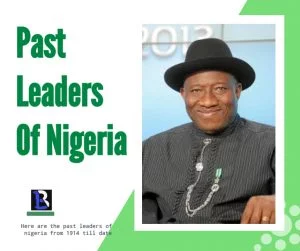 president Goodluck Jonathan
president Goodluck JonathanTaking over as the Vice president during Umaru Musa Yar’adua’s Leadership, Goodluck Jonathan became the president of Nigeria from the 9th of February 2010 till the 29th of May 2015. However, he acted for Yar’Adua till the 5th of May 2010.
Goodluck Jonathan joined Nigerian politics after studying at the University of Port Harcourt (UNIPORT). He was once the deputy governor of Bayelsa state, but when the acting Governor was impeached because of his criminal activities, he became the acting governor.
As vice president during Umaru Musa’s tenure, Goodluck Jonathan keep a low voice until he was declared president after the death of Umaru Musa Yar’adua.
Goodluck Jonathan spent most of his time trying to make peace in the country. Conversely, after he lost the 2015 general election, he was made the chairperson of the newly inaugurated International Summit Council for Peace (ISCP). No doubt, he is one of the best amongst all the past leaders of Nigeria from 1914 till date.
24. Muhammadu Buhari – President (29 May 2015 – till date)
 past leaders of nigeria from 1960 till Date
past leaders of nigeria from 1960 till DateMuhammadu Buhari is the current president of Nigeria. He assumed office on the 29th of May 2015 and he is still the leader of Nigeria till date.
Before winning the 2015 General election, Buhari had attempted in 2003, 2007 and even 2011 general elections. In 2019, he defeated Atiku Abubakar by over 3 million votes making him the president of Nigeria for another 4 years (second tenure).
Also read:
25. Bola Ahmed Adekunle Tinubu – President (29 May 2023 – Till date)
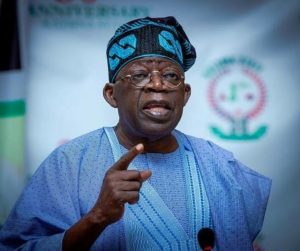 who is the new president of nigeria
who is the new president of nigeriaBased on the 2024 presidential election result of the Independent Electoral Commission (INEC), Bola Ahmed Tinubu (Former Governor of Lagos State) was declared the winner and is now the current president of Nigeria. The swearing in of the president happened on the 29th of May, 2023. Bola Ahmed Adekunle Tinubu is expected to serve the country as president for the next four years. And after the four years, he can run for another four years tenure if he is legally reelected by the people of the federal Republic of Nigeria.
It should be noted however, that the 2023 election was reported to be one of the most rigged election in the history of the country. There were many uncertainties as to the election results and court cases regarding the legality of how the election was conducted but Bola Ahmed Adekunle Tinubu won and eventually became president of the nation.
Recommended: Countries with the best education system in Africa
Wrapping up:
So far, those are the past leaders of Nigeria from 1914 till date (2024). From the above, i believe you will also attest to the fact that majority of the progress and developments Nigeria boost of today were not attained in recent times. Many leaders of Nigeria even before independence contributed to the success of this great country.
Hope this article was helpful? If you love this post and you have any contribution or question to ask concerning the past leaders of Nigeria from 1914 till date, kindly use the comment section below this post. I will be glad to hear from you!

Edeh Samuel Chukwuemeka, ACMC, is a lawyer and a certified mediator/conciliator in Nigeria. He is also a developer with knowledge in various programming languages. Samuel is determined to leverage his skills in technology, SEO, and legal practice to revolutionize the legal profession worldwide by creating web and mobile applications that simplify legal research. Sam is also passionate about educating and providing valuable information to people.

 2 months ago
16
2 months ago
16













